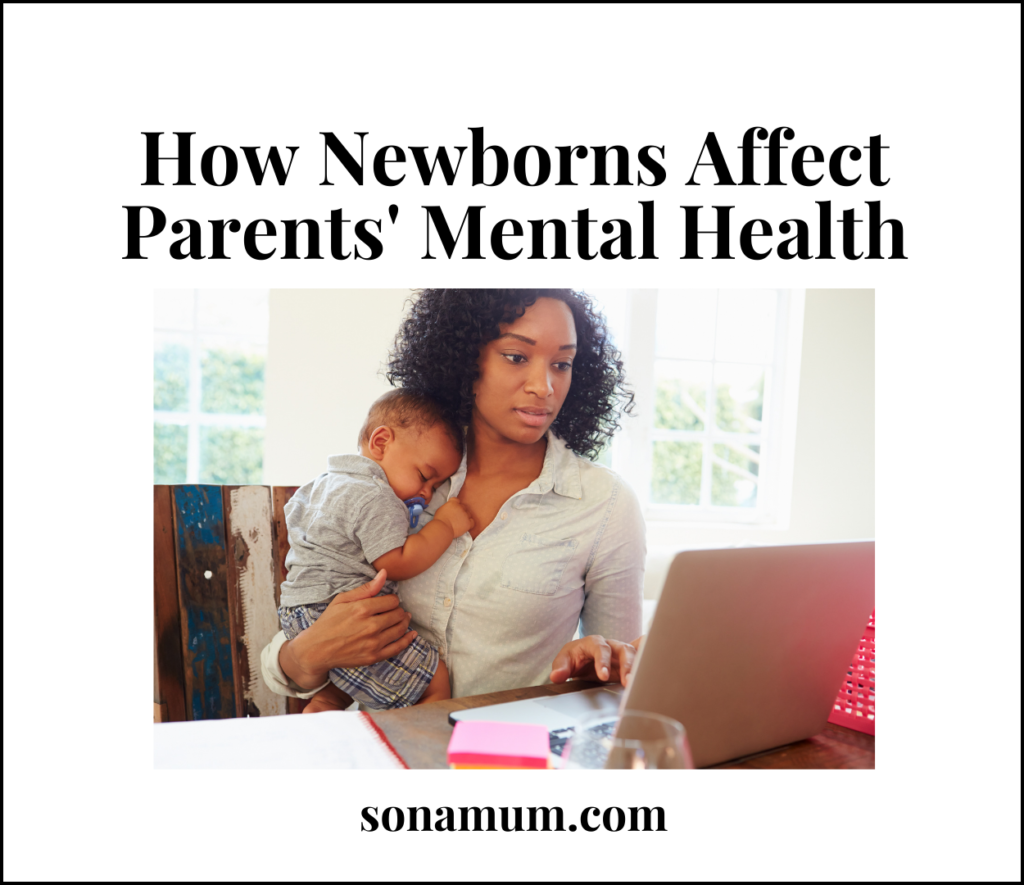
Bringing a new baby into the world is a momentous and joyous occasion, but it’s also a significant life change that can have a major impact on parents’ mental health. While of course there may be lots of moments filled with love, wonder, and new discoveries, they can also be overwhelming, exhausting, and stressful. In this post, we’ll explore some of the ways that having a newborn can impact parents’ mental health, and offer tips for managing these challenges.
- Sleep deprivation: One of the most significant challenges of having a newborn is the lack of sleep that parents experience. Babies wake frequently to eat and be changed, which can leave new parents feeling exhausted, irritable, and unable to cope with daily life. Lack of sleep can also contribute to anxiety and depression, making it important for parents to prioritise rest whenever possible.
Tip: Don’t just roll your eyes when I tell you to nap! Whether that’s when your baby sleeps, or when a friend or partner is entertaining them even if it’s just for a few minutes at a time. Enlist the help of family and friends to take care of your baby while you rest. Getting a little more sleep is one of the best ways to give your mental health a boost.
- Hormonal changes: The postpartum period is a time of significant hormonal changes, which can impact mood, energy levels, and overall mental health. Some people may experience postpartum depression or anxiety, while others may struggle with mood swings, irritability, or other emotional changes.
Tip: If you need help to support you through the mood and energy shifts hormones can bring or are struggling with postpartum depression or anxiety, you can book a free initial consultation with me and talk through your challenges, I’ll share some tools and technique to help you cope.
- Relationship changes: Bringing a new baby into the family can also impact the dynamic between partners. The demands of caring for a newborn can leave little time or energy for the relationship, which can lead to feelings of isolation, resentment, or frustration.
Tip: Make time for your relationship, even if it’s just a few minutes each day. Try to communicate openly and honestly with your partner about your needs and feelings.
- Social isolation: Having a new baby can also be isolating, particularly if you’re a first-time parent or if you don’t have a strong support system. Many new parents struggle with feelings of loneliness or disconnection from others.
Tip: Join a new parent support group or online community to connect with others who are going through similar experiences. Reach out to family and friends for support and help when you need it.
- Financial stress: The cost of caring for a new baby can also be a significant source of stress for many parents. From nappies and formula to childcare, the financial burden of having a baby can be overwhelming, particularly if you’re on a reduced maternity income.
Tip: Create a budget and prioritise your spending to focus on the essentials. Look for ways to save money, such as buying second hand baby clothes or equipment. NCT sales and Facebook Marketplace are a great place to look.
Having a newborn can be both a rewarding and challenging experience for parents. By recognising the impact that a new baby can have on mental health, and by taking steps to manage these challenges, you can better navigate the ups and downs of parenthood. Remember, it’s okay to ask for help when you need it, and to prioritise self-care and rest during this exciting and transformative time.




